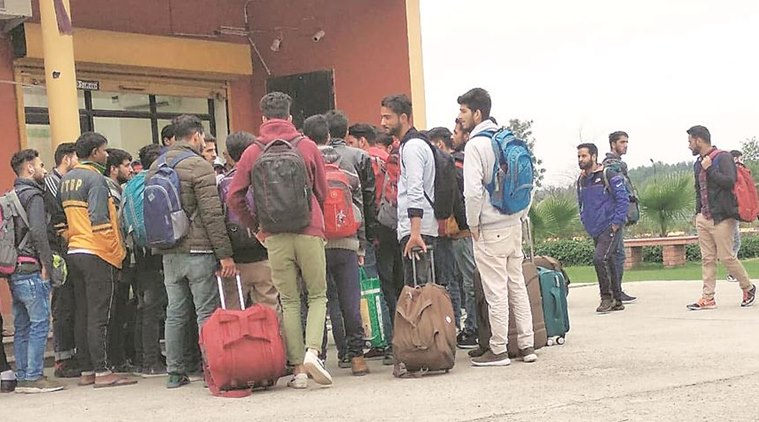
Written by Muzamil Yaqoob and Basit Abubakr
After the gruesome attack on Indian forces on February 14 in Pulwama, everyone came forward to condemn the attack. However, there has been complete denial in influential quarters of another sort: The media and academia seem to gloss over the deeper conflicts and crises that played a role in bringing two nuclear armed neighbours to the brink — and could again.
The media’s engagement with Pakistan touched new lows, post-Pulwama. At the same time, civil society exhibited disinterest in condemning the violence against Kashmiris in different parts of India.
The violence is another grim reminder of the othering of the people of Kashmir. The continuous war-mongering and the hate propaganda on TV has created an environment with serious implications for Kashmiris: The advisories for Kashmiri students at different varsities to not venture outside their hostels seem to confirm the climate of fear we are living in. Students were forced to cancel academic tours and conferences, affecting their careers, while traders were forced to shut their business and leave.
The Kashmir conflict has a direct bearing on the education sector in the state as the perilous condition compels thousands of students to leave their homes and study outside the state. The recent episode showcased the precariousness that pervades the life of a Kashmiri scholar, and it should now be enough to make a concerned civil society focus on rebuilding the education sector in Kashmir, so that students aren’t forced to cut short their careers if situations like the one we face today arise. All this while the central government failed to provide any measures to ensure safety against the violence that was inflicted on the students, in educational institutions in Dehradun for example. This has not only jeopardised the conditions of those who were evicted but also left the remaining Kashmiris vulnerable.
The ruling dispensation, known for its anti-minority rhetoric, began facing increasing discontent and stiff opposition in the recent past. A need was perhaps felt to divert attention from multiple controversies and disastrous policies of the government, as the general elections are around the corner, by targeting Kashmiris in the wake of Pulwama. A malevolent narrative around Kashmir and Kashmiris being the biggest threat to India’s national security, is being promoted.
It is also a fact that in present-day India, bigotry is as rampant as racism is in America: It is a game of “us” versus “them”, wherein the bodies of the other are treated as lesser bodies, just as blacks were in America. One can see how prejudices are deepened and disseminated every night on several news channels — the way the media referred to the black male as a “brute” and “thug” in the US, here, the other is referred to as a “terrorist” and “fundamentalist”.
And it is over these lesser bodies that the muscular and jingoist nationalists want to reap electoral dividend while the Indian left-liberal keeps getting pushed on to the backfoot. Even experts on Kashmir can be seen today caving in to the climate of war mongering, as they advocate an armed war against another country, regardless of the terrible consequences.
The Indian government should take note of the fact that this targeting of Kashmiris furthers the alienation of an already disgruntled population, which will take a long time to reverse. It has undone whatever gains had been made in the years when violence had declined in the Valley. Not everything can be blamed on Pakistan and the Indian government should take appropriate steps to resolve the conflict as soon as possible.
The scrapping of Article 370 of the Constitution cannot be an answer to the escalating situation in Kashmir. It will only sharpen the anxieties of an insecure people. Nor can the “de-hyphenation of Ladakh and Jammu from Kashmir Valley” yield any fruitful results. Kashmir deserves a dialogical solution by taking on board all the stakeholders.
Yaqoob, 22, and Abubakr, 27, are students at Jawaharlal Nehru University, Delhi